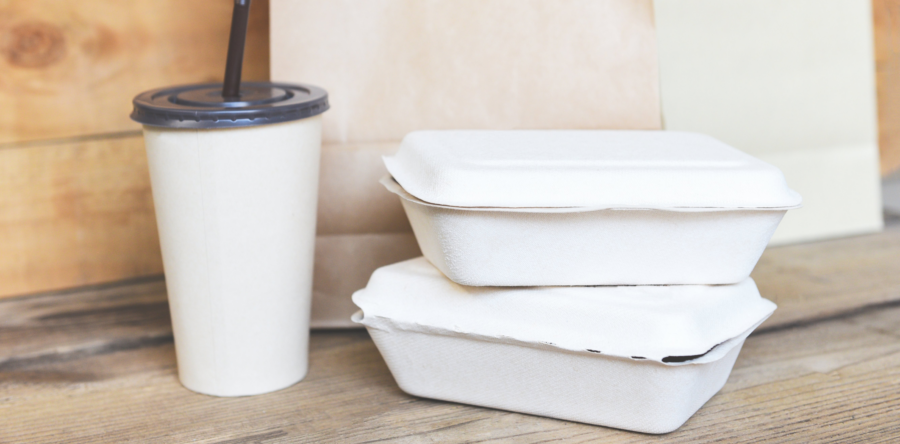10 Reasons To Switch To Molded Pulp Packaging

It doesn't matter your trade because you are definitely looking for something like molded pulp packaging if you're here. You could be dealing with kitchenware, glass jars, eggs, or electronics and need molded fiber packaging for your products. This type of material has some advantages that make it an excellent option for your needs. For instance, it is lightweight, saves on space, and its raw material is available and environmentally friendly. Here are more reasons why you should use pulp packaging.
Molded Pulp Packaging is Multipurpose
Molded pulp is easy to work with and cast into various shapes and sizes as needed. This makes such packaging instrumental for daily use, adding extra protection to both delicate and tough products. The pulp fiber is cast into different three-dimensional shapes uniquely designed for various products. Packaging material can be customized to within millimeter accuracy, making the most out of available resources.
It's Environment Friendly
Is molded pulp compostable? Pulp packaging manufacturers use molded pulp packaging to reduce their carbon footprint and alleviate environmental degradation. As it is sourced from natural fibers and materials, it is 100% recyclable. On top of that, it is not hazardous or toxic. Even if it gets dumped in a landfill, natural fiber is degradable and compostable.
By using natural raw material, you help reduce carbon emissions and reverse the damage done from plastic and other non-biodegradable waste.
Popular Customer Choice
These days, more than ever, customers prefer companies that care about environmental conservation. As molded packaging keeps up with this theme, it is becoming a popular choice among customers. Companies that utilize pulp packaging material show that they care about the environment and retain and gain more customers in the long run.
Molded Pulp Packaging is Affordable
Many businesses are set up with the objective of being profitable. One way of increasing the bottom-line margin is molded pulp packaging. Molded packaging is cheaper to work with as compared to traditional packaging and is a smart move for businesses that are out to make more money.
Increased Impact Protection
Molded pulp packaging is designed to fit whatever it will be carrying, for example, wine bottles or cups. The risk of goods getting damaged is highest during transit, and this is avoided if they fit perfectly in the packaging material. This material softens vibrations, cushions, blocks, braces, and supports whatever you are shipping, and the added protection is superior to traditional packaging material.
For example, electrical gadgets are at risk of damage or malfunction at every stage of the product sales cycle, from packaging, manufacturing operations, storage and handling, translocation to the dealer, and store display. Molded fiber packaging offers top-notch protection from the damaging effects of vibration and turbulence that dentures various electrical devices like cell phones, desktop computers, toner cartridges, printers, hard drives, and modems.
Molded fiber packaging is not rigid like plastic and other similar material. Its softer texture eliminates the risk of scratches and abrasions to your treasured items and is ideal for shipping and storage.
Some conditions damage electrical devices, including dampness, dust, and some environmental conditions. Molded pulp packaging is useful in the safekeeping of your gadgets across varying temperature and humidity conditions.
Based on what you're shipping and client instructions, fiber packaging material can be customized to be oil-and-water resistant, shock-proof, and anti-static properties, making it the recommended choice for electronic devices.
Optimum Space Utilization
Larger fiber molding saves space by stacking and nesting inventory on pallets. This increases the number of products that are shipped and the amount that can be stored in your warehouse. When you have a higher pallet count, you negate the need for additional space. As the warehouse manager, you can rent more space. If you lease space, incorporating fiber packaging material lets you store more merchandise.
Increases the Bottom-line
Plainly put, molded packaging is a space saver and cost-efficient. Right from the production line, the design is simple and based on resource sufficient materials. Moreover, the finished product is nestable and saves more than 50% space allowing you to ship more products per truckload. Its superior protective quality ensures that vibrations, weather, or water damage nothing.
Unlimited Design Options
The electronics industry utilizes molded pulp packaging in order to facilitate easy shipping of valuable and delicate gadgets.
Pulp packaging manufacturers custom design packaging boxes and rely on an experienced team with top-of-the-line technology. Thanks to advanced technology, molded fiber packaging can be made into a myriad of shapes and sizes without compromising their protective quality.
Keeping the eco-friendly theme in mind, more companies are transitioning to pulp packaging, including leading developers such as Samsung Electronics. The standard toner packages include a box, plastic foam, cushioning element, and a warranty booklet. On the other hand, molded packaging has two parts – the unit box which has the toner, and the information cover. Therefore, this molded pulp packaging can take many forms while still being eco-friendly.
Improves Organization's Reputation
Molded fiber packaging products are geared to maximize the use of resources and energy while also spearheading environmental protection efforts. Additionally, environmentally friendly packaging raises the image of the organization and its products.
By shifting to this 100% recyclable commodity, appliance manufacturers can do more than just PR as being environmentally conscious and increase customer trust and profit.
Performance Quality of Molded Fiber
Due to molded fiber's nature and design, this form of packaging is typically reinforced with robust bracing to accommodate every kind of package. Molded fiber packaging is durable and resistant to many elements of weather, heat, and humidity. All these aspects make it a value-for-money investment.
Conclusion
The outlook of the manufacturing industry is shifting towards sustainability. Due to its eco-friendly nature, superior protective ability, lower production cost, and top-grade customizability, more retailers are investing more in molded fiber packaging, a switch from traditional plastic and polystyrene foam packaging.
